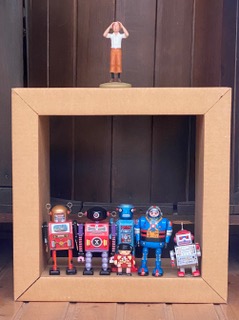Q: How did you start writing short stories?
A: As a challenge to myself. And partially an accident.
I had worked on a manuscript for the better part of a year. I had some good scenes, some like-able characters, but the narrative never felt cohesive. No matter how much I revised, I could never get it to gel in any meaningful way. So, I put it aside.
I returned to it every couple of months, the characters wouldn’t leave me alone, but it took nearly a year for me to view it objectively. I realized I had too many characters—too many underdeveloped characters, to be precise—and a tenuous narrative plot that tried, unsuccessfully, to weave them all together. It vacillated wildly between long passages of historical facts and a forced fictional narrative. How to combine all this historical information with a story?
Then I stumbled upon a quote by Devin Murphy explaining how he learned to do research as fiction writer (I’m paraphrasing): Stop looking for facts and details; instead, seek out scenes and events that reveal what it’s like to be alive at this moment for the character. (The quote is way longer, but this is the essence of what resonated with me. I even printed and posted it next to my desk.)

Taking Mr. Murphy’s quote to heart, I took another look at what I had written. Turns out, the two characters that kept screaming at me were the story, not my forced original idea. So, I cut out everything but these two women. I revisited their narrative arcs. The challenge became trying to tell their stories as succinctly as possible. The parameters for short stories provided that framework. Turns out my first effort wasn’t a novel manuscript, it was the start of a short story collection. A novel in stories, if you will, about these two women.
I learned so much from this experience: never disregard any writing; give your writing room to breathe; listen to your characters; don’t force narrative. This single experience changed the way I approach writing and crafting my stories. Don’t be afraid to challenge yourself with other genres—you might be pleasantly surprised.

